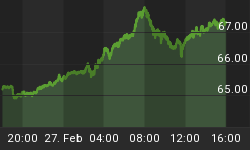Over the past week more than one article has questioned whether Canada's housing prices - which have continued to escalate after 2008, and continue to - are 'in a bubble' and are about to correct either modestly or severely. Infrequently do these articles discuss what would cause a change in direction in Canadian housing prices. Clearly things that could/would change the direction of Canadian housing prices to 'general downward' include:
-
at a micro-level:
-
Canadian consumer household debt levels,
-
Canadian unemployment rates, and
-
future changes to mortgage rates, mortgage rules, and mortgage lending policies; and,
-
-
at a macro-level:
-
what happens in the world economy, and if we see world further recession or worse, the contagion consequences as they affect Canada on a regional basis.
-
In our integrated world economy be sure that the Canadian economy will not be exempted from further economic downturn. The Canadian populace will not be sheltered from its effects of decreased exports, decreased employment, likely rising food prices, and so on. All these things will negatively impact Canadian house prices - and perhaps no more so than in the major metropolitan areas.
Watch for Canadian:
-
monthly net trade balances decreases;
-
manufacturing data downturns;
-
negative unemployment data;
-
increases in labour unrest; and,
-
decreases in consumer confidence
in the weeks and months to come. Don't be shy about asking retail clerks, automotive salesmen, people who work in new construction, and in particular real estate agents 'how is business?'. Make sure if you ask that question of real estate agents that you read their body language, not just their lips.
If unemployment data in particular begins to worsen that will be an indicator that Canadian house prices likely have peaked and will begin to reverse.
Topical Reference: Will Canada's housing boom end with a whimper or a bang, from The Financial Post, Pamela Heaven, July 17, 2012 - reading time 2 minutes.















